Ted Cruz, Bernie Sanders emerge victorious in Wisconsin primaries
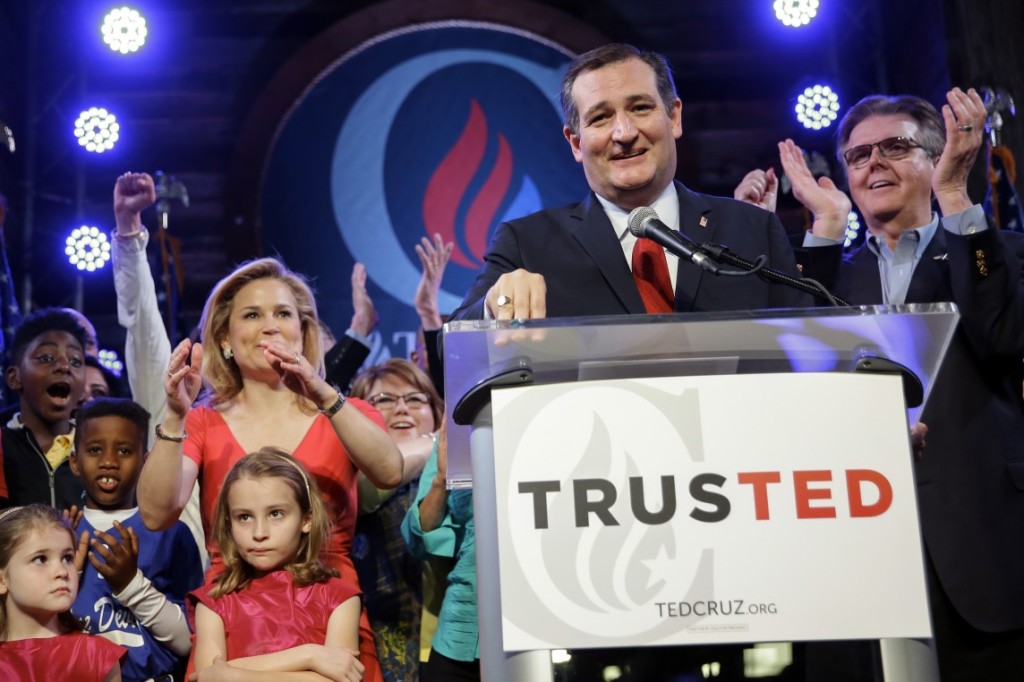
Republican Ted Cruz stormed to a commanding victory in Wisconsin Tuesday, denting front-runner Donald Trump‘s chances of capturing the GOP nomination before the party’s convention. Democrat Bernie Sanders triumphed over Hillary Clinton but still faces a mathematically difficult path to the White House. Trump’s defeat capped one of the worst periods of his campaign, a brutal stretch that highlighted his weaknesses with women and raised questions about his policy depth. While the billionaire businessman still leads the Republican field, Cruz and an array of anti-Trump forces hope Wisconsin signals the start of his decline. “Tonight is a turning point,” Cruz told cheering supporters at a victory rally. “It is a call from the hardworking people of Wisconsin to America. We have a choice. A real choice.” Cruz, a Texas senator with a complicated relationship with Republican leaders, also cast his victory as a moment for unity in a party that has been roiled by a contentious primary campaign. But Trump was unbowed. His campaign put out a biting statement: “Ted Cruz is worse than a puppet— he is a Trojan horse, being used by the party bosses attempting to steal the nomination from Mr. Trump.” Sanders’s sweeping win in virtually every county in Wisconsin, except Milwaukee, gives him greater incentive to keep competing against Clinton. But he still trails her in the pledged delegate count and has so far been unable to persuade superdelegates— the party officials who can back any candidate — to drop their allegiance to the former secretary of state and back his campaign. At a raucous rally in Wyoming, Sanders cast his victory as a sign of mounting momentum for his campaign. “With our victory tonight is Wisconsin, we have now won 7 out of 8 of the last caucuses and primaries,” he declared. The results in Wisconsin make it likely both parties’ primaries will continue deep into the spring, draping front-runners Trump and Clinton in uncertainty and preventing both from fully setting their sights on the general election. With an overwhelming white electorate and liberal pockets of voters, Wisconsin was favorable territory for Sanders. In a sign of Clinton’s low expectations in the Midwestern state, she spent Tuesday night at a fundraiser with top donors in New York City. Clinton congratulated Sanders on Twitter and thanked her supporters in Wisconsin. “To all the voters and volunteers who poured your hearts into this campaign: Forward!” she wrote. Sanders’ win will net him a handful of additional delegates, but he’ll still lag Clinton significantly. With 86 delegates at stake in Wisconsin, Sanders will pick up at least 44 and Clinton will gain at least 28. That means Sanders must still win 67 percent of the remaining delegates and uncommitted superdelegates in order to win the Democratic presidential nomination. While Trump has been the dominant force in the Republican race, he battled a series of campaign controversies in the lead-up to Wisconsin, including his campaign manager’s legal problems following an altercation with a female reporter and his own awkward stumbles in clarifying his views on abortion. Wisconsin’s Republican establishment, including Gov. Scott Walker, has also campaigned aggressively against the businessman. Exit polls in the state underscored the concerns about Trump that are surging through some corners of the Republican Party. A majority of Republican voters said they’re either concerned or scared of a potential Trump presidency. More than a third said they were scared about what Trump would do as president, and about 2 in 10 said they were concerned, according to surveys conducted by Edison Research for The Associated Press and television networks. The Texas senator was poised to collect most of Wisconsin’s 42 Republican delegates. Trump still has a narrow path to claim the nomination by the end of the primaries on June 7. But by losing Wisconsin, the real estate mogul has little room for error in upcoming contests. Complicating the primary landscape for both Cruz and Trump is the continuing candidacy of John Kasich. The Ohio governor’s only victory has come in his home state, but he’s still picking up delegates that could otherwise help Trump inch closer to the nomination or help Cruz catch up. To win a prolonged convention fight, a candidate would need support from the individuals selected as delegates. The process of selecting those delegates is tedious, and will test the mettle of Trump’s slim campaign operation. Cruz prevailed in an early organizational test in North Dakota, scooping up endorsements from delegates who were selected at the party’s state convention over the weekend. While all 28 go to the national convention as free agents, 10 said in interviews they were committed to Cruz. None has so far endorsed Trump. Despite the concern among some Wisconsin Republicans about Trump becoming president, nearly 6 in 10 GOP voters there said the party should nominate the candidate with the most support in the primaries, which so far would be Trump. Even among voters who favored Cruz, 4 in 10 said the candidate with the most support going into the convention should be the party’s nominee. Republished with permission of the Associated Press.
Lawmakers vote to override Robert Bentley veto, enact General Fund budget
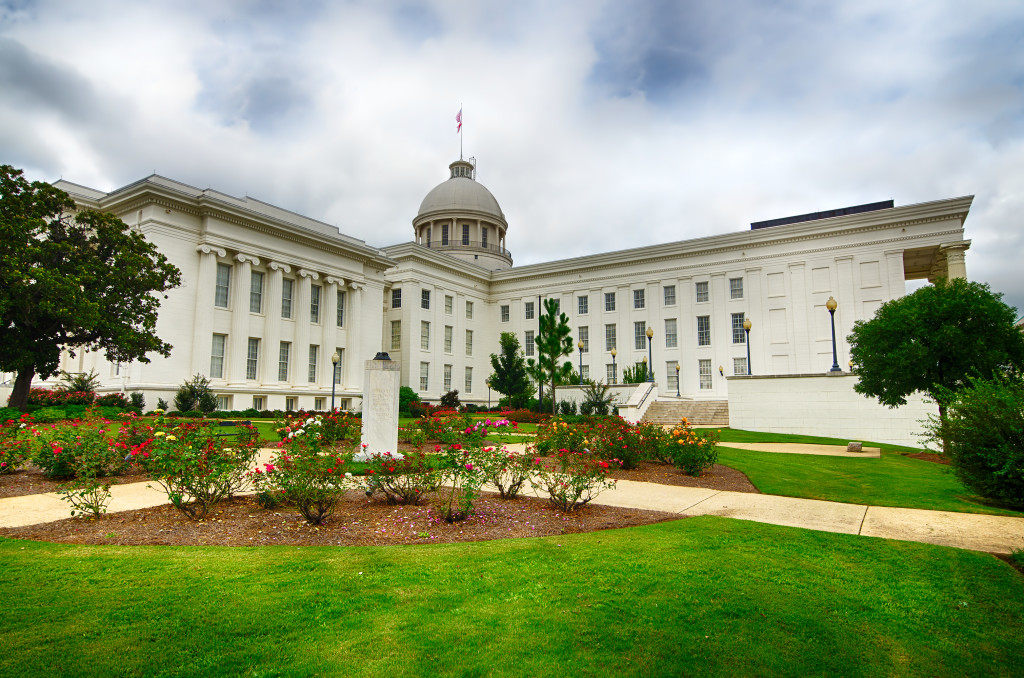
Rebuking Gov. Robert Bentley‘s veto for the first time in 2016, Alabama lawmakers voted Tuesday to enact the General Fund budget the governor previously rejected over Medicaid funding. Bentley vetoed the budget last month for being $85 million short of the money needed to maintain services and reimbursement rates in the state’s Medicaid program, warning lawmakers the state would not be able to provide basic medical services to children and the elderly without the additional funding. “As one of the lowest state-funded Medicaid agencies in the country, the Alabama Medicaid Agency focuses services to those most in needed: our low-income children, pregnant women, elderly and people with disabilities,” Bentley wrote in his veto message to lawmakers. “Without additional resources, we simply cannot fulfill our constitutionally and statutorily mandated duties.” Lawmakers ignored Bentley’s strong words overriding his gubernatorial veto with a majority vote — the Senate, 22-10, followed by the House, 71-24. Bentley, however, wasn’t the only one with harsh criticism over the approved budget. Kimble Forrister, executive director of Arise Citizens’ Policy Project – a nonprofit advocacy group for low-income Alabamians – said General Fund budget would force “devastating Medicaid cuts that could force many hospitals to close and lead many pediatricians to leave the state.” “We can’t build a stronger Alabama by taking a sledgehammer to the foundation of our state’s health care system. But that’s just what this inadequate General Fund budget would do,” said Forrister in a statement after Tuesday’s override votes. Bentley has hinted he may call lawmakers back for a special session to tackle the Medicaid shortfall.
Panama Papers could add to outrage in presidential race
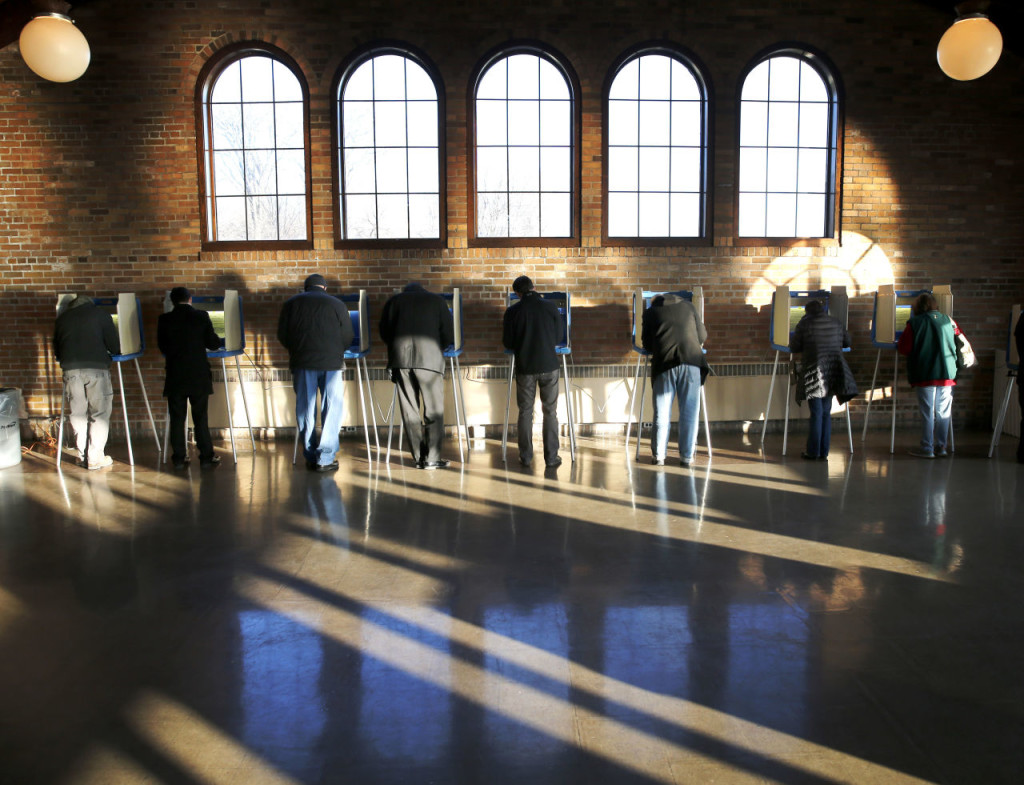
The revelations in the Panama Papers could add to the populist outrage in the presidential race by confirming many of the fears of Bernie Sanders supporters on the left and contributing to the distrust that drives people to Donald Trump on the right. So far, the 11.5 million leaked documents have shed light mostly on foreign figures such as the prime minister of Iceland, who resigned Tuesday after the public learned that he used a shell company to shelter large sums of money while his country’s economy foundered. The reaction in the U.S. has been relatively muted. But voters and experts suggested that the papers could still validate the frustration of blue-collar Sanders supporters who feel that hard work is no longer enough to get ahead in America and the anger of Trump partisans who say it will take someone who knows the insider system to dismantle it. Retired Wisconsin high school teacher Steve Nibbe, who was voting for Sanders on Tuesday in Wisconsin’s presidential primary, said word of the documents made him “sit up and take notice.” But he said he was not shocked. “It just seems that those who have wealth — and sometimes that comes with privilege — are able to do things that other people are not,” said Nibbe, 60, from Verona, outside the state capital of Madison. Joe Brettell, a Republican strategist based in Houston, doubted whether the public’s fury could get much worse. “The populist anger being fueled primarily by white working-class Americans didn’t need any more fuel,” Brettell said. “They’ve already lived through the financial meltdown. They’ve already lived through the lack of middle-class wage increases even as the stock market boomed.” The papers illustrate how a small class of global elites amass staggering wealth and find elaborate ways to hide it from tax collectors, bank regulators and police. The passports of at least 200 Americans are included in the documents, according to news organizations that have access to them, though none are thought to be as famous as celebrities and politicians from other countries, such as Russian President Vladimir Putin and Argentine soccer star Lionel Messi. In all, 12 current or former heads of state are included in the legal records from Panama’s Mossack Fonseca law firm. They were first leaked Sunday to the Sueddeutsche Zeitung newspaper based in Munich, Germany. Charles Postel, a history professor at San Francisco State University who has studied American populism and wrote a book titled “The Populist Vision,” said of Sanders, “This is just the type of thing that is animating his base.” He described Trump as “more of a nationalist.” “His issue is not that these rich people are not playing by the rules. It’s that we need powerful people who will protect Americans,” Postel said. “That’s a different thing that provokes outrage.” The New York billionaire might even actually win points with supporters if he were among the rich and famous mentioned in the documents, Postel said. “If Trump said, ‘Of course I put half of my money in the Virgin Islands,’ none of his voters would object to that,” Postel said. “They’d say, ‘Sure, he’s a billionaire. If I was a billionaire, I wouldn’t pay my taxes either.’” That was a sentiment echoed somewhat by 24-year-old factory worker Demetrius Rimmer of Milwaukee, who had not heard about the scandal before a reporter mentioned it. But he was none too impressed: “It’s always about money.” Rimmer voted for Sanders. If the papers become more of a presidential issue, it won’t be confined to the Trump or Sanders camp. “Both sides do it,” said Mike Feiler, a 52-year-old auto dealer in Verona who said he voted for Texas Sen. Ted Cruz in the primary. “Both sides try to hide their money.” Republished with permission of the Associated Press.
Donald Trump finally explains how he’ll get Mexico to pay for his border wall

Donald Trump would try to force Mexico to pay for a border wall by targeting billions of dollars in remittances sent by immigrants living in the U.S., according to a memo released by his campaign Tuesday. The memo outlines in new detail how Trump would try to compel Mexico to pay for the 1,000-mile wall he’s promised to build along the Southern border if he becomes president. In his proposal, Trump threatened to change a rule under the USA Patriot Act, an anti-terrorism law, to cut off a portion of the funds sent to Mexico through money transfers known as remittances. His plan would also bar non-Americans from wiring money outside of the U.S. unless they can provide documentation establishing their legal status in the country. Trump said he would withdraw the threat if Mexico makes “a one-time payment of $5-10 billion” to finance the wall. “It’s an easy decision for Mexico: make a one-time payment of $5-10 billion to ensure that $24 billion continues to flow into their country year after year,” the memo reads. “Good luck with that,” President Barack Obama said Tuesday in response to questions about Trump’s proposal. He warned of the ramifications such a plan would have on the Mexican economy which, in turn, would drive more immigrants to cross the border in search of jobs. “People expect the president of the United States and the elected officials in this country to treat these problems seriously, to put forward policies that have been examined, analyzed are effective, where unintended consequences are taken into account,” Obama said. “They don’t expect half-baked notions coming out of the White House. We can’t afford that.” The U.S. is home to about 12 million Mexicans, some living here illegally, according to various research organizations that monitor trends in immigration. They and other migrants use money transfer agents or banks to send money home, often with the objective of supporting their families. The Mexican central bank reported that money sent home by Mexicans overseas hit nearly $24.8 billion last year, overtaking oil revenues for the first time as a source of foreign income. Cutting off those transfers would therefore represent a significant blow to the Mexican economy. The memo also lists other potential areas for leverage, including threats of trade tariffs, cancelling visas – including targeting “business and tourist visas for important people in the Mexican economy” – and increasing visa fees, including includes fees on border crossing cards. The release of the memo was first reported by the Washington Post early Tuesday. This is not the first time that Trump has spelled out options for pressuring Mexico into paying for his signature policy proposal. In an immigration overhaul plan released in August, Trump’s campaign suggested a number of options for compelling Mexico to pay for the wall. Those included impounding “all remittance payments derived from illegal wages,” increasing fees on temporary visas issued to Mexican CEOs and diplomats — “and if necessary cancel them” — increasing fees on border crossing cards, increasing fees on NAFTA worker visas from Mexico, and increasing fees at ports of entry between the two countries. “Tariffs and foreign aid cuts are also options,” the immigration paper stated. Trump’s campaign did not immediately respond to questions, including whether he still envisions impounding any money. It is also unclear whether Trump would seek any input from Congress. He and other Republicans have long criticized Obama for relying too heavily on executive orders to ram through his agenda. Under the Patriot Act, a government-issued identification is already required for routine money transfers in the United States. For high-dollar transactions additional documentation or identification can be required. According to Matt Chandler, a former deputy chief of staff at the Homeland Security Department, financial institutions must know their customers and are required to routinely share information with the government to ensure that their banking services aren’t being used to launder money or fund terrorism. “Not only would making procedures more onerous for day to day transactions do little to actually improve anti- money laundering or counter terrorism financing compliance programs, but could harm those efforts by driving money movement away from routinely used secure channels to underground methods,” Chandler said. Trump’s wall is his signature policy proposal – and mere mention of the word elicits booming cheers and applause at his rallies, where supporters sometimes dress in wall shirts and costumes. Trump often leads call-and-response sessions where he asks his audience who will pay for the wall. “Mexico!” they thunder in response. The billionaire businessman has estimated his proposed wall would cost between $10 billion and $12 billion, and has argued that it would protect the country from illegal border crossings as well as halting drug shipment. The memo’s release comes the day of the Wisconsin primary, where Trump has been trailing rival Ted Cruz is some recent opinion surveys. Mexico’s President Enrique Peña Nieto has said his country will not pay for any such wall. In an interview with the Excelsior newspaper last month, Pena Nieto compared Trump’s rhetoric to that of dictators Adolf Hitler and Benito Mussolini, saying that language like his has led to “very fateful scenes in the history of humanity.” ___ Republished with permission of the Associated Press.
Robert Bentley responds to impeachment threats
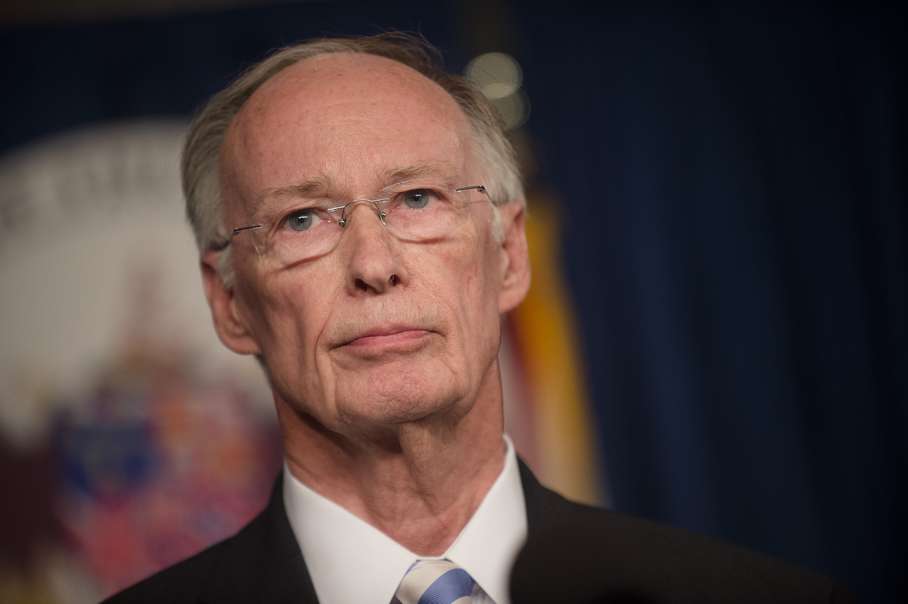
On Tuesday, Alabama Gov. Robert Bentley responded to impeachment threats that surfaced last week. “For five years, I have faithfully served the people of Alabama,” Bentley said in a news release. “There are no grounds for impeachment, and I will vigorously defend myself and my administration from this political attack.” In the statement, Bentley cited the “great progress” that has been made under his administration in streamlining how state government operates, which has saved Alabama taxpayers about $1 billion annually. Bentley added that the articles of impeachment being brought forth are little more than “political grandstanding intended to grab headlines and take the focus away from the important issues the Legislature still has to address before the end of the session.” “There is a lot of work to do before I end my term in office in 2019,” Bentley said. “I have laid out a strategic plan for success, and I will continue to focus my efforts on making Alabama a great state. That is what the people of Alabama overwhelmingly elected and re-elected me to do. I will continue to work hard for them every day.”
GOP senator meets with Supreme Court nominee Merrick Garland, says hearings should be held
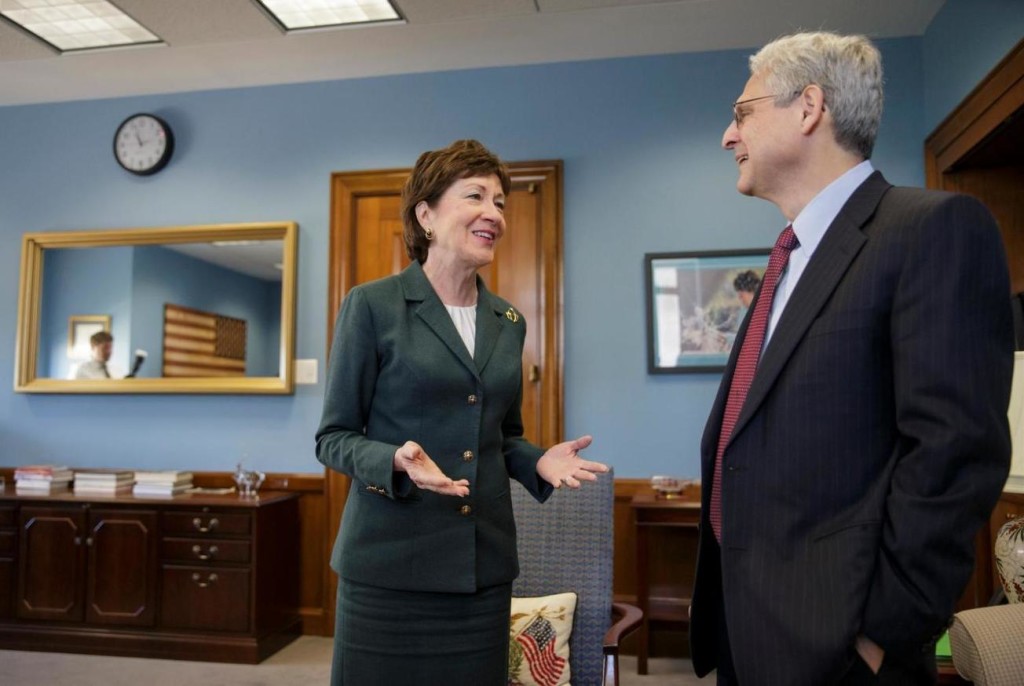
A Republican senator said Tuesday she is “more convinced than ever” that there should be hearings on President Barack Obama‘s Supreme Court nominee after meeting with Judge Merrick Garland. But Senate Majority Leader Mitch McConnell, R-Ky., made clear he is not budging, telling reporters: “I think it’s safe to say there will not be hearings or votes.” Maine Sen. Susan Collins sat down with Garland on Capitol Hill for more than an hour. She is one of two GOP senators to call for hearings on Garland’s nomination after McConnell said there would be no hearings or votes, leaving the decision to the next president after voters have their say in November. “He has a humility about him,” Collins said immediately after the meeting. “He has clearly thought very deeply about the issues confronting the courts, there was not any question he could not handle and he has a long record of accomplishment.” Collins acknowledged that she is unlikely to change anyone’s mind on the issue. McConnell and Senate Judiciary Committee Chairman Charles Grassley of Iowa have held firm that they will block Garland, a move that conservative activists have cheered. Those two GOP leaders have the backing of 50 other GOP senators this election year. Not long after Collins’ made her comments, McConnell addressed reporters after meeting behind closed doors with fellow Republicans. He said that Democrats’ attempts to pressure Republicans on the issue during the Senate’s just-completed spring recess had failed. “The situation when we broke for the recess two weeks ago was that there were 52 Republican senators who didn’t think we needed either a hearing or a vote in committee. And today two weeks later we have 52 Republicans who think we don’t need either a hearing or a vote in committee,” McConnell said. “I think it’s safe to say there will not be hearings or votes. I think it is also safe to say the next president, whoever that may be, is going to be the person who chooses the next Supreme Court justice.” Garland is also meeting with Republican Sen. John Boozman of Arkansas on Tuesday, and has several meetings scheduled with Democrats. Close to 20 GOP senators have said they are willing to meet Garland, though most oppose letting the confirmation process progress. Collins and Sen. Mark Kirk of Illinois are the only two who have called for hearings. Kansas Sen. Jerry Moran had also said he thought there should be hearings, but reversed that position after conservative backlash. Grassley’s office said Monday that he invited the judge to breakfast, though reiterated that he would not change his mind on the issue. Collins noted that the Iowa senator had at least extended that courtesy. “Let’s see if after that meeting Sen. Grassley still holds to the position that there should not be hearings,” she said. Collins said Garland is well-informed and thoughtful and that her colleagues would be impressed with him. She has spoken out at caucus meetings to try to convince others to have meetings and support hearings. “It would be ironic if the next president happens to be a Democrat, and chooses someone who is far to Judge Garland’s left,” she said. ___ Republished with permission of the Associated Press.
Ted Cruz, Bernie Sanders angle for wins in Wisconsin primaries
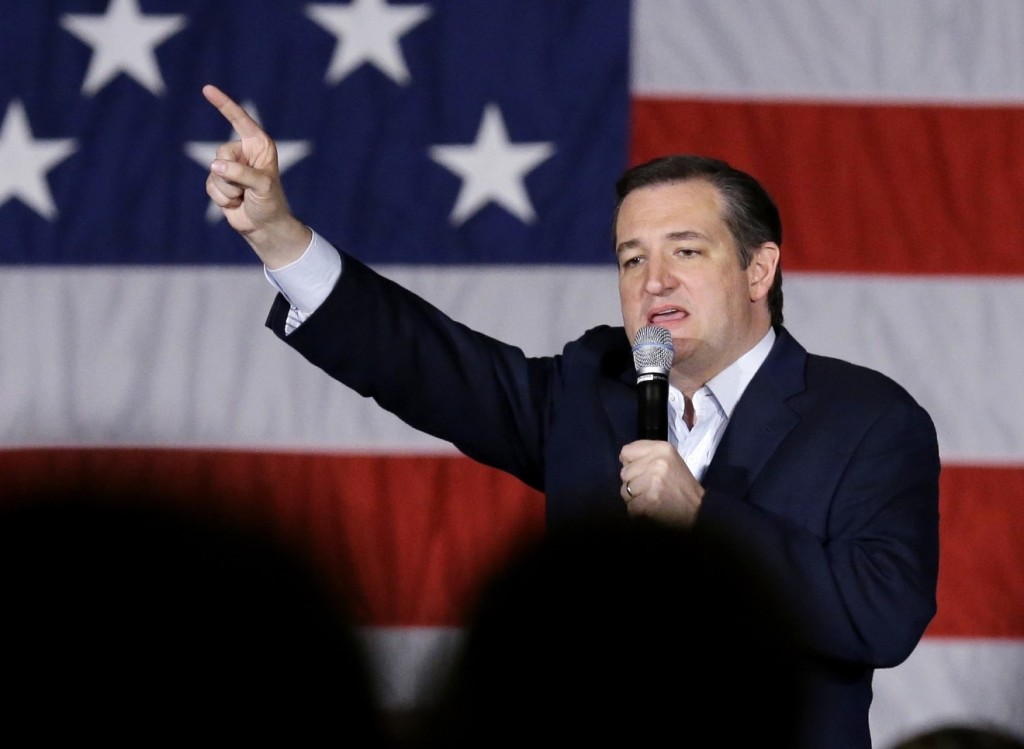
Republican Ted Cruz and Democrat Bernie Sanders are angling for victories in Tuesday’s Wisconsin presidential primaries that could give their campaigns a needed boost, but still leave them with mathematically challenging paths to their parties’ nominations. While Sanders remains a force in the Democratic primary, a win over Hillary Clinton in Wisconsin would do little to significantly cut into her lead in delegates that will decide the party’s nomination. The stakes are higher for Cruz, who trails Donald Trump in the GOP race and sees Wisconsin as a crucial state in his effort to push the party toward a convention fight. “We are seeing victory after victory after victory in the grassroots,” Cruz said during a campaign stop Monday. “What we are seeing in Wisconsin is the unity of the Republican Party manifesting.” With the White House and control of Congress at stake in November, leaders of both parties are eager to turn their attention toward the general election. Clinton would enter the fall campaign saddled with persistent questions about her honesty and trustworthiness, but also with a significant demographic advantage. It’s an edge Democrats believe would be magnified in a race against Trump, who has made controversial comments about immigrants and women. For Trump, the long lead-up to Wisconsin’s contest has included one of the worst stretches of his candidacy. He was embroiled in a spat involving Cruz’s wife, which he now says he regrets, was sidetracked by his campaign manager’s legal problems after an altercation with a female reporter, and stumbled awkwardly in comments about abortion. While Trump is the only Republican with a realistic path to clinching the nomination ahead of the Republican convention, a big loss in Wisconsin would greatly reduce his chances of reaching the 1,237 delegates needed to do so before the GOP gathers in Cleveland. Cruz headed into Tuesday’s contest with the backing of much of the state’s Republican leaders, including Gov. Scott Walker, but Trump made a spirited final push in the state and predicted a “really, really big victory.” “If we do well here, it’s over,” he said. “If we don’t win here, it’s not over.” Complicating the primary landscape for both Cruz and Trump is the continuing candidacy of John Kasich. The Ohio governor’s only victory has come in his home state, but he’s still picking up delegates that would otherwise help Trump inch closer to the nomination or help Cruz catch up. Trump has grown increasingly frustrated with the governor and has joined Cruz in calling for Kasich to end his campaign. Kasich cast Trump’s focus on him as a sign that he’s best positioned to win over the businessman’s supporters. “They’re not really his people,” Kasich said. “They’re Americans who are worried about, they’re really most worried about their kids, are their kids going to have a good life?” If Cruz wins all of Wisconsin’s 42 delegates, Trump would need to win 57 percent of those remaining to clinch the GOP nomination before the convention. So far, Trump has won 48 percent of the delegates awarded. To win a prolonged convention fight, a candidate would need support from the individuals selected as delegates. The process of selecting those delegates is tedious, and will test the mettle of Trump’s slim campaign operation. Cruz prevailed in an early organizational test in North Dakota, scooping up endorsements from delegates who were selected at the party’s state convention over the weekend. While all 28 of the state’s delegates go to the national convention as free agents, 10 said in interviews that they were committed to Cruz. None has so far endorsed Trump. Paul Lorentz, was in line at 6:30 a.m. in Sun Prairie, Wisconsin, Tuesday to cast a vote for Kasich saying he typically votes Democratic in the general election and Republican in Wisconsin’s open primary, in order to sway that side to a better candidate. “My hope is always to have two acceptable candidates running for president,” Lorentz said. Among Democrats, Clinton has 1,243 delegates to Sanders’ 980 based on primaries and caucuses. When including superdelegates, or party officials who can back any candidate, Clinton holds an even wider lead — 1,712 to Sanders’ 1,011. It takes 2,383 delegates to win the Democratic nomination. Sanders would need to win 67 percent of the remaining delegates and uncommitted superdelegates to catch up to Clinton. So far, he’s only winning 37 percent. Even if Sanders wins in Wisconsin, he’s unlikely to gain much ground. Because Democrats award delegates proportionally, a narrow victory by either candidate on Tuesday would mean that both Sanders and Clinton would get a similar number of delegates. Carrie-Ann Todd, a 39-year-old mother saddled with student debt, said she voted for Sanders on Tuesday given his efforts to address the cost of college. “I’m paying more on my student loans than I am on my cars,” Todd says. “I don’t know if he’ll get any support if he gets into the White House, but it’s worth a shot.” Republished with permission of the Associated Press.
Alabama legislative preview: April 4 – April 8, 2016
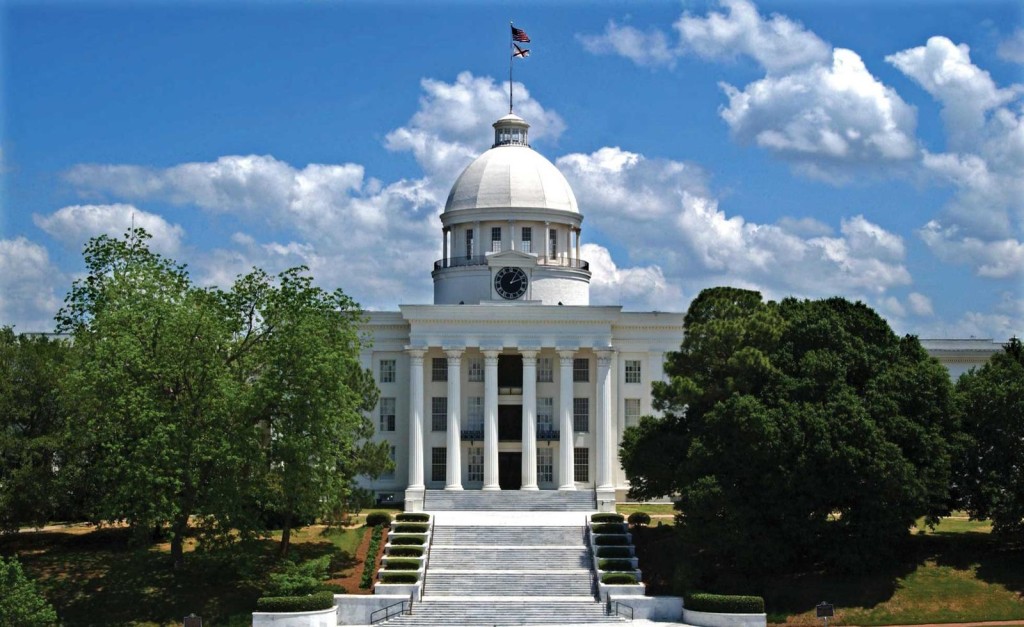
Legislators return to Montgomery this week after their spring break, with the House of Representatives convening at 1 p.m. and the Senate an hour later Tuesday. In the Senate, lawmakers are slated to take up SB342 from Sen. Vivian Figures (D-Mobile), which would make the transmission of an explicit message a Class A misdemeanor. The body will also take up SB347 from Sen. Paul Bussman (R-Cullman), which would legalize the manufacturing of industrial hemp in the state. The Senate will also take up SB14 from Sen. Gerald Allen (R-Tuscaloosa), which would allow citizens to carry a pistol in a vehicle without a permit. Over in the House, lawmakers will take up two alcohol-related bills: HB46 from Rep. Alan Boothe (R-Troy) would allow Alabama distilleries to sell their product for off-premise consumption and HB83 from Rep. David Faulkner (R-Birmingham) would allow state wineries to establish an off-site tasting room. On Wednesday, committee hearings will get underway. At 1 p.m. in room 325 of the state house, the Senate Judiciary Committee will take up the grandparent’s visitation rights bill, HB334 from Rep. Mike Jones (R-Andalusia), as well as HB115 from Rep. Paul Sanford (R-Huntsville), which would decriminalize possession of the marijuana-based, seizure-reducing medication CBD oil. At 1:30 p.m in room 727 at the state house, the Senate Rules Committee will take up SB97 from Sen Gerald Dial (R-Lineville), which would allow the Ten Commandments to be displayed on state property and at public schools. At 9 a.m. in room 429 of the state house, the House Health Committee will take up HB183 from Rep. Kerry Rich (R-Guntersville), which would require abortion providers to conduct a sonogram before providing an abortion. At 1:30 p.m. in room 418 of the state house, the House Committee on Education Policy will take up HB299 from Rep. Ed Henry (R-Decatur), which would prohibit local school boards from adopting or enforcing “zero tolerance” policies regarding drugs, alcohol, weapons or physical harm to another person. The bill would also require that the definition of firearm be “narrowly construed.”
Eco-friendly cemetery haunted by Alabama funeral directors, law

When Sheila Champion founded The Good Earth Burial Ground in Madison County she did not expect the type of legal backlash to come. The business is designed to create a “green” burial space for families wanting to provide their loved ones with an all-natural burial. However, Alabama law only allows licensed funeral directors to sell caskets, urns or shrouds, which are often made of material that is not conducive to a “green” burial. For her part, Champion wants to design these types of items to allow a body to decompose naturally and fertilize the Earth as it does so. On Tuesday, Champion and lawyers from the Institute for Justice (IJ) filed a lawsuit demanding that anyone be able to manufacture and sell caskets, urns and shrouds. A failure to do so only allows Champion to act as a counselor and provide a “green” cemetery space – the grounds of which won’t allow the mass-manufactured caskets commonly used. The IJ has filed lawsuits of this nature all across the country, most recently in Louisiana when monks for Saint Joseph’s Abby sought the right to sell their own caskets – they won. “I feel I should have the right to sell caskets, urns and shrouds,” Champion said. “There’s no reason that only licensed Alabama funeral directors should have that right. It’s just ridiculous.” Champion also lambasted an Alabama law that requires families to hire a licensed funeral director to be involved in a home memorial, thereby hiking the cost even further. “Families should have the right to have a memorial for their loved ones in their home,” Champion said. “People just don’t pay attention to the stupid laws that get passed.” Champion’s attorneys have alleged that the laws are a ploy to funnel money into the pockets of funeral directors. “A casket is just a box and the law does not even require one for burial,” said IJ Attorney Renée Flaherty, who is representing Champion. “There is no legitimate health or safety reason to license casket sellers.” According to Champion’s website, the cost for a standard funeral is staggering, both financially and environmentally. Champion’s dream is to design bio-degradable funeral merchandise for the natural decomposition of a body and lower the expense levied upon grieving families. “Four out of five federal courts that have ruled on this issue have struck down restrictions on casket sales as unconstitutional,” IJ Senior Attorney Jeff Rowes said in a press release. “More broadly, there is disagreement among the federal courts over whether the government can restrict economic liberty just to protect favored industries from competition, and Shelia’s case may be the one that goes all the way to the U.S. Supreme Court to resolve that conflict.”
Robert Bentley orders Alabama National Guard to protect U.S. border

On Tuesday, Gov. Robert Bentley ordered Alabama National Guard members to assist in protecting the United States border with Mexico at the request of the National Guard Bureau. The state will send UH-72 helicopter and three pilots to Marana, Arizona to assist in this effort. “Securing the U.S. border is an issue that is important to every American, and the Alabama National Guard is supporting the effort to secure the border,” Bentley said in a press release. “The men and women who serve in the Alabama National Guard are some of the most dedicated and professional military service members in the country. I appreciate the Guard’s effort to support the Southwest Border Mission.” The press release goes on to say that the support is “needed immediately and the Alabama National Guard support will remain until the end of September.” The effort will come at no cost to the Alabama National Guard and the mission will provide training opportunities to for Alabama’s volunteer army members. The Southwest Border Mission, also known as Operation Phalanx, has gone since 2010 and has assisted local law enforcement and the U.S. Border Patrol in addressing the issue of illegal immigration into the country. According to Bentley’s statement, the effort has aided “in more than 28,000 apprehensions and countless border turn-backs, as well as seizure of 42,000 pounds of marijuana and additional narcotics.” “The Alabama National Guard will support the Southwest Border Mission by providing one UH-72 helicopter and three pilots through the end of September 2016 in Arizona,” Major General Perry Smith said. “These missions provide enhanced training for our pilots, while at the same time providing strengthened borders to protect the Nation. I appreciate Governor Bentley’s long-standing and steadfast support of the Alabama National Guard.” The announcement of Alabama guardsmen being sent to the border comes on the heels of an announcement by Bentley that he is supporting a Texas lawsuit calling executive immigration actions by President Barack Obama an “overreach” of power.
John Merrill releases information on April 12 primary runoff
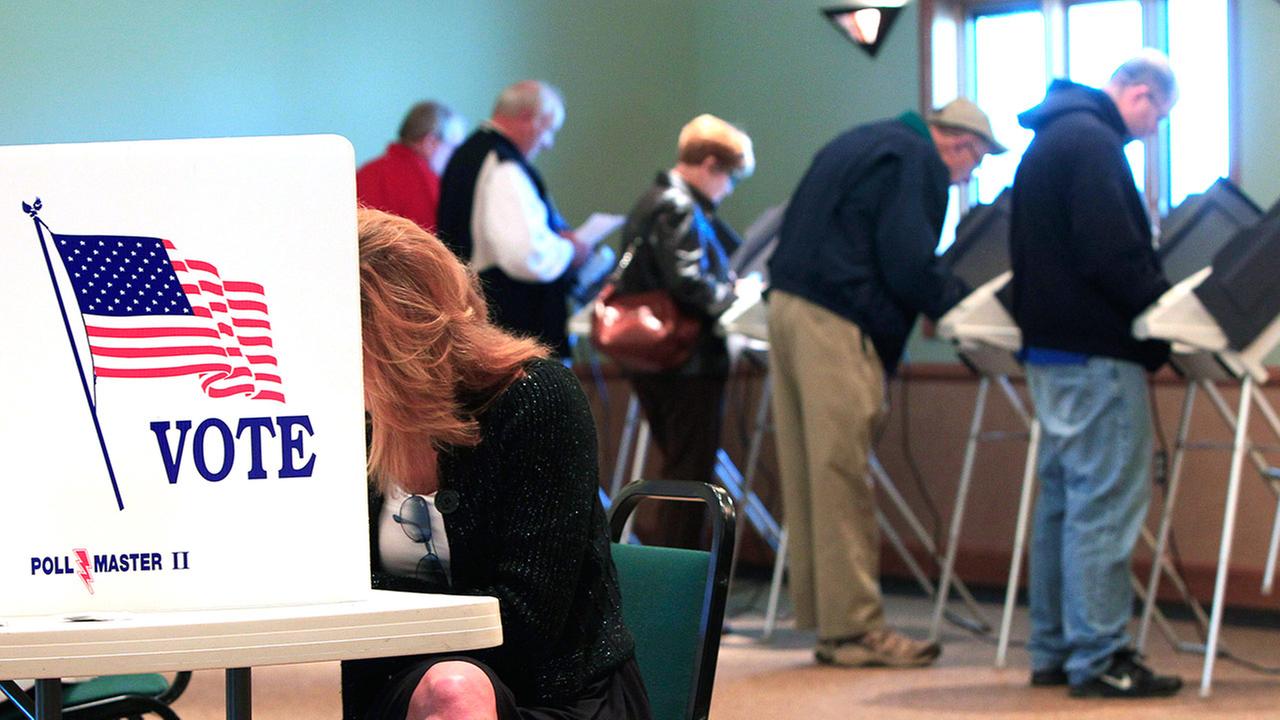
Alabama Secretary of State John Merrill released information Monday regarding the April 12 primary runoff in more than 40 counties across the state. Republican runoffs will be held in Autauga, Baldwin, Blount, Butler, Clay, Cleburne, Coffee, Colbert, Conecuh, Covington, Crenshaw, Cullman, Dale, Dekalb, Elmore, Excambia, Fayette, Franklin, Geneva, Henry, Houston, Jefferson, Lamar, Lauderdale, Lawrence, Limestone, Madison, Marion, Marshall, Mobile, Randolph, Shelby, Tuscaloosa, Walker and Winston counties next Tuesday. Democratic runoffs will be held in Bullock, Colbert, Conecuh, Dallas, Franklin, Greene, Jefferson, Monroe, Montgomery, Tuscaloosa and Wilcox counties. In Mobile County, Jackie Zeigler and Matthew Brown will face-off in a battle for the District 1 seat on the local school board. In Montgomery County, three candidates will go toe-to-toe for the District 7 seat on the Montgomery County Board of Education – incumbent Roberta Collins will go up against Arica Watkins-Smith and Phyllis Harvey-Hall. In Shelby County, two runoffs will play out next week: Lara Alvis and Patrick Kennedy will vie for the Circuit Judge position, while Ron Griggs and Ward Williams go head-to-head in the Shelby County Commission District 4 race. In Tuscaloosa County, incumbent Reginald Murray will face Gregalyn Robertson in the Democratic runoff for District 4 County Commissioner. In those counties, the elections may only pertain to a certain voting district rather than the entire county.
Adam Goodman: Donald Trump, Bernie Sanders are the ‘New American Transformers’
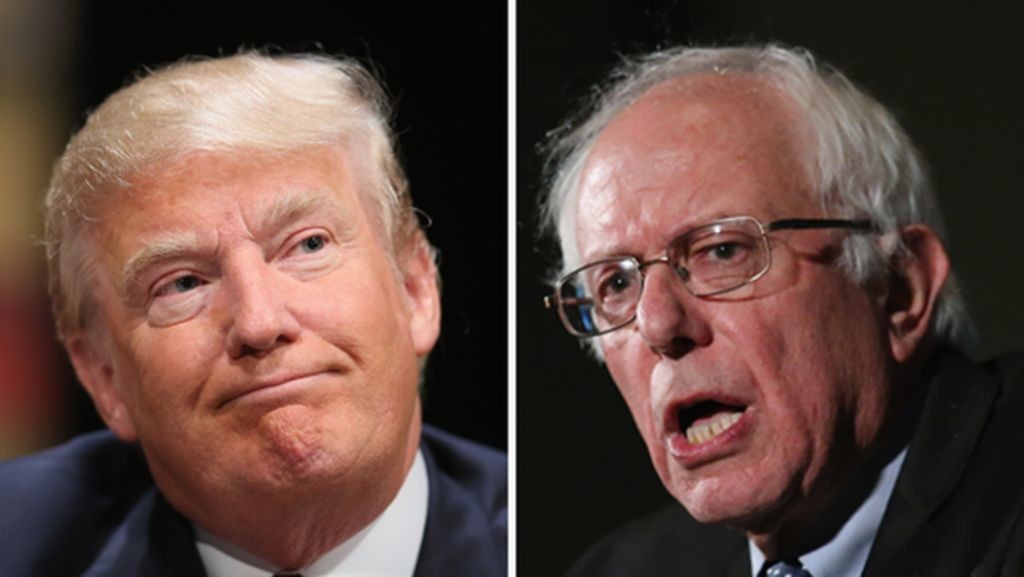
There’s a new reality show in America generating ratings and rave reviews before an audience that had been waiting a long time for it to begin. It’s called “The New American Transformers,” but unlike the “Transformer” movies this series does not revolve around a galactic battle but something much more down to Earth. It is a story about Americans looking to transform a system that’s broken, in a country that’s lost its way, led by politicians who’ve become more interested in self-preservation than national revival. The search for newness, freshness, and a jolt of confidence explains why both Donald Trump and Bernie Sanders, hailing from wholly different universes of ideology and temperament, whether they win or lose, are scoring big today. Both are armed with declarations of transformation, from policy and politics, to America’s relations around the world. Sensing our system is progressively collapsing under its own weight, Trump and Sanders have come to embrace this truth. To their credit, the American people have as well. Trump and Sanders, separate yet together, have lent voice to what we’re feeling. Separate, yet together, Trump and Sanders rejected canned political hyperbole in favor of spontaneous declarations, in the moment and for the moment. Separate, yet together, they command the stage, despite doubts about their electability, despite the establishment’s desperate attempts to explain it away, or wish it away. After all, how do you stop a movement? How do you slow the momentum of candidates who simply refuse to play by the normal rules of the game? Trump and Sanders are not programmed by advisers, manipulated by donors, or controlled by polls. They’re refreshingly real, dependably candid, and totally human. Do they mess up at times, driving the pundits and prognosticators nuts? Yes. Do they sometimes fumble when asked to fully explain their remedies? Yes. Yet, Americans today are more interested in the honesty of intent, than the dishonesty of promises never pursued. After a Versailles–like ceremony where Dr. Ben Carson blessed the Trump insurgency with an outsider’s hug, The Donald says, “I try to be who I am.” Bernie Sanders, in denouncing the system amid a throng of believers, says “there’s too much shouting at each other; too much making fun of each other.” Now anyone who’s ever run for office, and those like me who have served them, understand all voting is emotional. We are not robots. We vote our feelings. Psychiatrists liken this to falling in love, a kind of inexplicable madness that while not always rational, is overwhelmingly emotional. Consciously or not, Trump and Sanders are wooing America, without the varnish of prepared speeches, without the crutch of poll-driven drivel, without permission from the establishment or the media elites. That same establishment is now out to stop them, at all costs, and they’ve settled on their choice of weapon: the negative ad. When an establishment candidate can’t sell himself or herself, their strategy is to air negative ads against everyone else. When the audience is not buying the establishment’s pick, they are made to feel stupid, uninformed, manipulated by ignorance. Yet this conventional dismantling of candidates is falling on hard times, outmatched by Sanders’ and Trump’s panache in made-for-television rallies built from enthusiasm and bred from frustration. Here are three reasons why. One. People don’t form impressions of candidates from negative ads, especially when the source is self-serving, the claims are questionable, and the intent is malicious. Two. After the Supreme Court’s Citizens United decision opened the floodgates on negative ads, funded by outside groups with outside interests, they’re not unique anymore. Three. When any voter bonds with a candidate, that voter resents anyone who stands in the way of that relationship. No wonder Trump and Sanders are transforming the face of politics. In their world, it’s us versus them. In parallel, they have challenged party rules that preserve the interests of insiders, while challenging Americans to feel empowered again. Together, they have given us a choice: accept mediocrity in our domestic and foreign affairs, or expect excellence from themselves, and the nation. Together, they represent the agony and optimism of the American people. Given that choice, Michigan and Colorado Democrats sided with Sanders. Given that choice, Mississippi and Massachusetts Republicans flocked to Trump. By exercising that choice, the American people have begun to feel something the system long ago took for granted: hope. Meet the “New Transformers” — Sanders and Trump. Meet the new America, where democracy is alive, and well. *** Adam Goodman, a national GOP media consultant based in Florida, has created, directed and produced media for more than 300 candidates in 46 states over the past 35 years.


